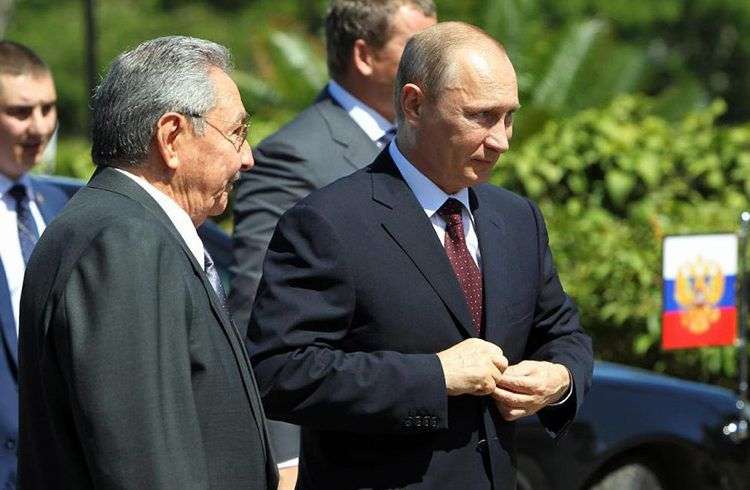Rosneft, a state-owned Russian company will start searching and extracting oil in Cuba supported by an agreement signed with the Cuban corporation CUPET. Both companies will work together in ground and offshore projects in the promising Exclusive Economic Zone in the Gulf of Mexico, where last August, 2013, a Russian platform explored the marine subsoil in search for hydrocarbons.
The agreement was signed at Havana’s Revolution Palace, before the Russian President, Vladimir Putin and his Cuban counterpart, Raul Castor, during the twelve hour visit of the Russian representative to Cuba.
As said by Putin, he came “to recoup lost opportunities”. Regarding investmentsin Cuban oil, he stated that “in the near future new oilfields will be taken in the Cuban maritime platform. Zarubezhneft S.A. and NK Rosneft S.A. have undertaken an active cooperation with CUPET for that purpose”.
Starting on 2015, the Russian enterprises will take on three drilling projects in the deep waters of the Gulf of Mexico, as had been previously announced by a high Cuban official.
Rosneft has come to Cuba and it does not need to worry about the US blockade against Cuba: it has been already sanctioned economically by Washingtong. Igor Sechin, one of the signatories of the agreement and president of the said Russian oil company, is included in a black list by the US Treasury, as he was among those sanctioned after the diplomatic crisis derived from territorial disputes between Russia and Ukraine.
“We will aid our Cuban friends to overcome the illegal blockade imposed by the US”, said the Russian president to his Cuban homologue, after signing ten documents on cooperation.
Vladimir Putin and Raul Castro talked about perspectives for increasing Russian investments in Cuba, as well as tourist flows. Russia also expressed its interest in locating in the Caribbean island GLONASS stations, their version of GPS, “for providing Cuba products, services and technologies in the field of Earth teledetection and satellite telecommunications”, noted Putin to Prensa Latina news agency.
Another important project is the joint construction of an international cargo airport in San Antonio de los Baños, closeto Mariel harbor, where lays a military air base originally built by the US in the 40’s.
Putin commented on the interest by Russian entrepreneurs to invest in Mariel’s Special Development Zone, in fields such as “the manufacture of assembled plastic products, spare parts for cars, the assembling of tractors and heavy machinery for the railroad industry”.
Moscow is serious about retaking the economic alliance with Cuba in view of the advance by other European investors in sectors its entrepreneurs could have made the most of.
Prior to his visit to Havana, the Russian president stated that “during the 90’s, our bilateral cooperation was reduced, and foreign partners from other nations moved ahead us. For instance, Canada offered Cuba promising joint projects in mining and Europeans boosted tourism”.
Apart from oil, the main Russian investment (one billion dollars) will be on the construction of power plants in the western part of the island. Its implementation will represent the comeback of the Russian heavy industry two decades after the collapse of the Soviet Union.
Raul Castro personally waved Putin good bye at the Jose Marti International Airport. Twelve hours earlier, he had been welcomed by Cuban first vice-president Miguel Diaz-Canel. The heat Putin must have sensed on his arrival in Cuba must have reminded him he was once again in Havana, though the welcoming must have showed him he was in a different Cuba.










